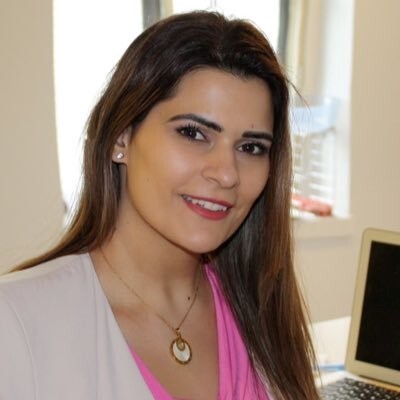Reeman Marzouqah, Rehabilitation Sciences Institute

Why Temerty Faculty of Medicine:
The Temerty Faculty of Medicine at the University of Toronto is one of North America’s most renowned faculties with unparalleled opportunities. I chose Temerty Faculty of Medicine for my Ph.D. due to its research-intensive program and training from scientists who all advocate for intersectional research and knowledge translation into evidence-based practice.
Why this Department:
I chose the Rehabilitation Sciences Institute (RSI) due to its well-established speech-language pathology program and reputation as a leader in rehabilitation research. RSI enabled me to combine both my research interests and clinical experience in speech-language pathology.
Current Research Experience:
I am a third-year Ph.D. candidate in the Speech Production Laboratory at the Rehabilitation Sciences Institute (RSI), Temerty Faculty of Medicine, University of Toronto. I have been a clinician in the field of speech-language pathology (SLP) since 2015 and am bringing clinical knowledge and expertise to my research program. I have been exposed to research during my undergraduate and graduate studies and early clinical career. Before joining the speech production lab team as a Ph.D. student, I was employed in the lab as a research assistant since September 2018, working on data collection and data analysis with stroke survivors and those living with amyotrophic lateral sclerosis and Parkinson’s disease. Currently, for my Ph.D. dissertation, I am taking the lead on a project focused on developing an exercise program to treat obstructive sleep apnea (OSA) post-stroke. OSA is a common consequence of stroke; post-stroke OSA is associated with greater mortality, a higher risk of recurrent stroke, poorer cognition and lower functional status. Moreover, stroke patients with OSA spend significantly longer in rehabilitation and acute care hospitals. There is preliminary evidence that oropharyngeal exercises (OPE) can significantly improve the symptoms and signs of OSA in other diseases, but not yet after stroke. Answering this research question will be a significant and novel contribution to my Ph.D. work.
Future Education Plans and/or Career Goals:
I plan to pursue a long-term career as a clinician-scientist in a hospital or university setting.